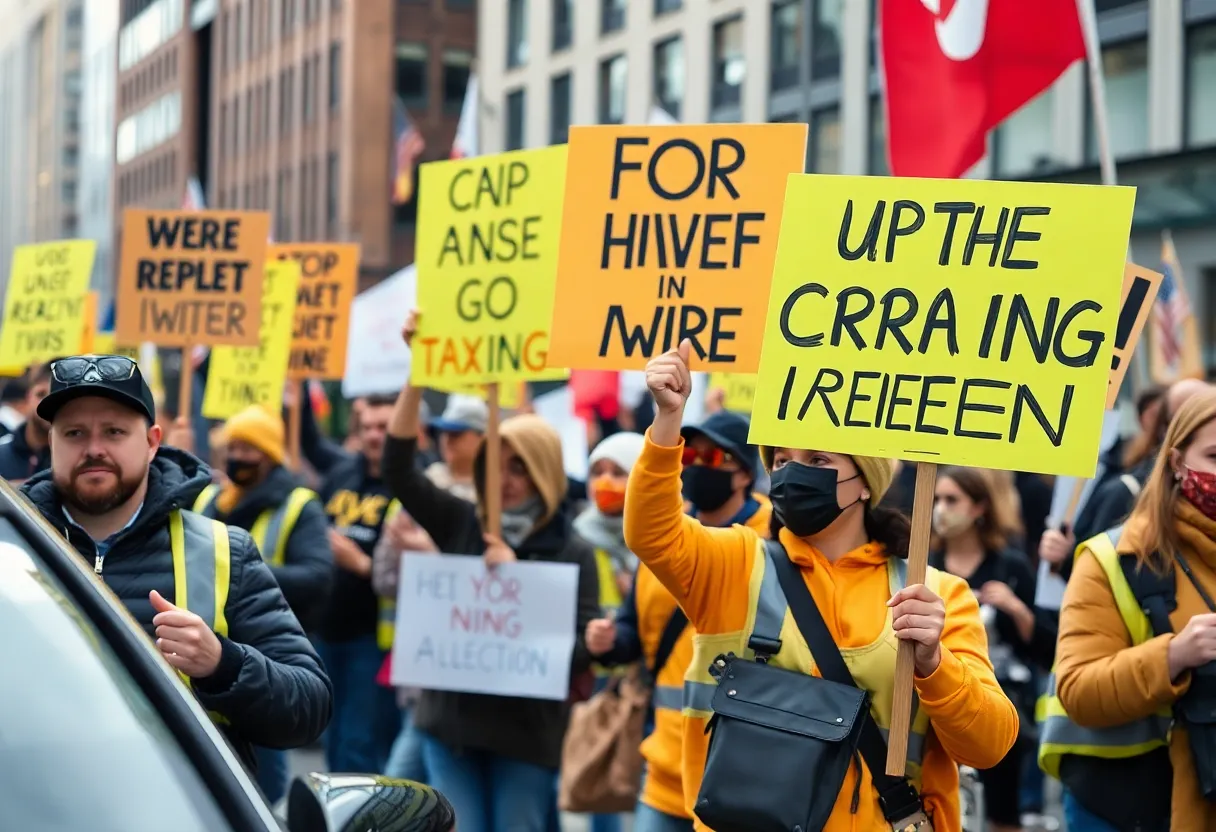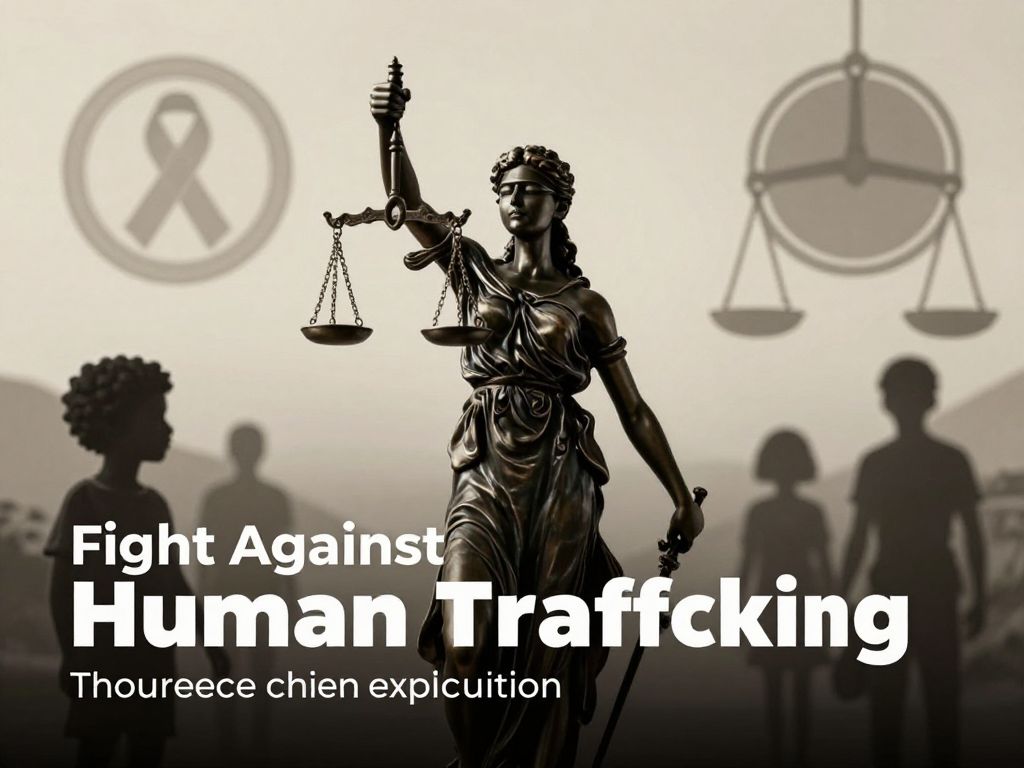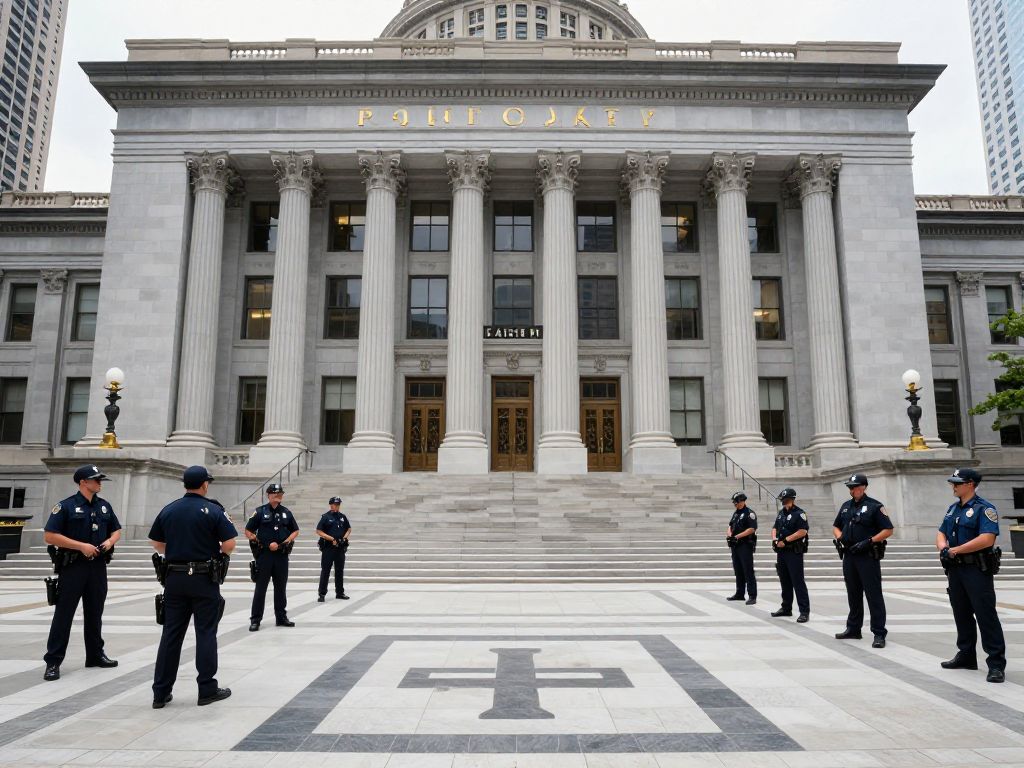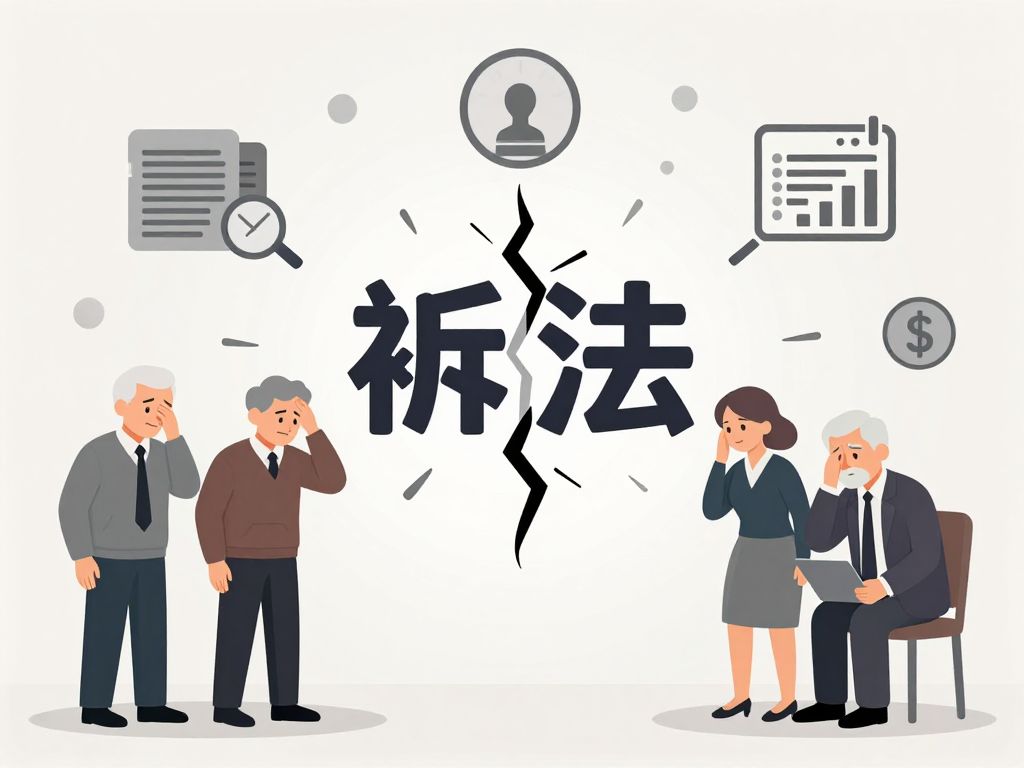News Summary
App-based drivers in Massachusetts are opposing a new bill they believe postpones their unionization rights until mid-2026. This comes after a successful voter-approved measure that allows drivers to organize and negotiate collectively. Critics argue the bill serves as an obstruction to unionization, complicating driver organizations’ efforts to secure better working conditions and fair pay. Despite recent legal advancements for rider compensation, many drivers still face economic challenges and seek immediate union rights to combat unfair treatment.
Boston, Massachusetts – App-based drivers in Massachusetts are rallying against a bill that they believe delays their unionization rights until mid-2026. This opposition follows a successful ballot measure that was approved by voters last year, granting drivers the authority to organize and bargain collectively. The measure passed with a significant 54% majority, marking a pivotal moment for drivers seeking better working conditions and fair pay.
The bill, introduced by Representative Mark Cusack and Senator John Cronin, has been described as a “technical fix” aimed at clarifying information-sharing obligations between driver organizations and the companies for which they work. However, critics argue that it functions as a barrier to unionization, which is seen as vital to ensuring drivers have a voice in their work environment. Furthermore, the proposed legislation would make driver records confidential, complicating the process for organizations to gain necessary insights for bargaining purposes.
Opponents, including representatives from the International Association of Machinists District 15, assert that the bill is disguised as a data privacy measure intended to undermine the democratic rights of drivers. Many drivers have already expressed their desire to unionize, with thousands signing union cards since the ballot question’s approval in November. They argue that any delays in their ability to organize prevent them from negotiating for safer working conditions and fair compensation.
Reports from drivers indicate that many are currently facing significant challenges, including harassment, unfair deactivations from their companies, and declining pay. Despite a recent settlement that mandated app-based companies like Uber and Lyft to ensure minimum pay and benefits, many drivers continue to struggle financially. Dwayne Mitchell, who has been a driver since 2016, shared that workers typically earn as low as $16 per hour, a stark contrast to the $33 per hour that passengers may perceive.
The recent legal settlement requires companies to pay at least $32.50 per hour while also providing paid sick leave and other benefits. However, some drivers have reported that long-distance jobs can actually result in financial losses, adding further complexity to their economic situation. As the state grapples with how to regulate the relationship between app-based companies and drivers, issues surrounding classification—whether drivers should be considered independent contractors or employees—remain contentious.
As Massachusetts navigates this landscape, the push for unionization coincides with a broader national conversation about labor rights within the gig economy. The fight for appropriate legal protections and working conditions reflects a growing demand from gig workers for fair treatment and recognition in an evolving labor market.
The ongoing debate over this bill and its potential implications for driver rights highlights the tensions between app-based companies and their workforce. As all parties await the outcomes of legislative discussions, drivers continue to advocate for their rights and the ability to form unions sooner rather than later.
Deeper Dive: News & Info About This Topic
- NBC Boston
- Wikipedia: Labor union
- Reuters
- Google Search: massachusetts uber lyft drivers unionize
- Inc.
- Encyclopedia Britannica: Union
- USA Today
- Google News: uber lyft unionization massachusetts

Author: STAFF HERE BOSTON WRITER
The BOSTON STAFF WRITER represents the experienced team at HEREBoston.com, your go-to source for actionable local news and information in Boston, Suffolk County, and beyond. Specializing in "news you can use," we cover essential topics like product reviews for personal and business needs, local business directories, politics, real estate trends, neighborhood insights, and state news affecting the area—with deep expertise drawn from years of dedicated reporting and strong community input, including local press releases and business updates. We deliver top reporting on high-value events such as Boston Marathon, Head of the Charles Regatta, and Boston Harborfest. Our coverage extends to key organizations like the Greater Boston Chamber of Commerce and Associated Industries of Massachusetts, plus leading businesses in finance, biotech, and insurance that power the local economy such as Fidelity Investments, Biogen, and Liberty Mutual Insurance. As part of the broader HERE network, we provide comprehensive, credible insights into Massachusetts's dynamic landscape.





